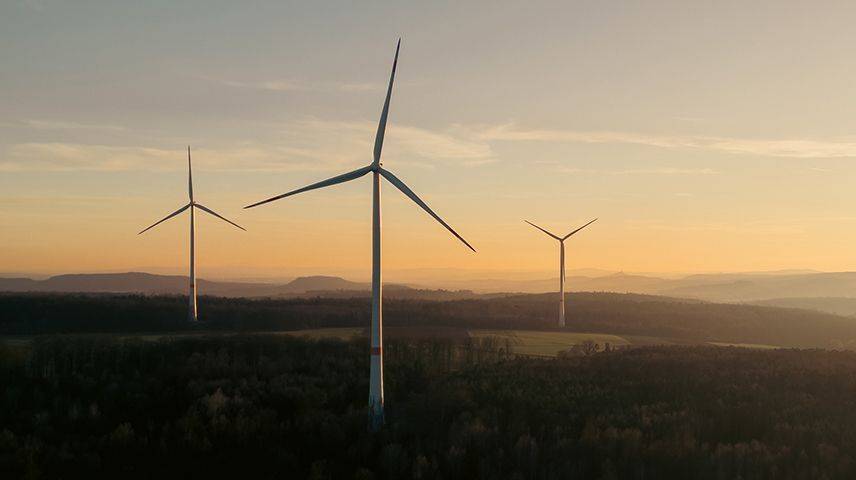ESG & Energy Transition
The renewable energy industry is dynamic and disruptive. Technology, regulation and incentives are evolving quickly as organizations and governments work towards a sustainable future.
Our integrated team helps clients break new ground with smart and innovative legal solutions. We have over 25 years of experience advising at the industry’s cutting edge, working on landmark renewable energy deals, emerging technologies and market-leading initiatives, including onshore and offshore wind, solar PV, hydrogen, electric storage, biomass and EV charging infrastructure.
Clients can act with confidence and overcome legal uncertainty, knowing that our lawyers have seen it all before.
Recent highlights
- M&A
- Joint ventures
- Project development
- Development finance
- Project finance
- Corporate fundraising
- Tax credits and other clean energy incentives
- Green sustainability-linked finance, such as green bonds, green loans, sustainability-linked loans, sustainability-linked bonds and sustainable securitizations
- Advising on the application of the green loan principles and EU green bond standards
- Land acquisition and site control
- Environmental planning and compliance
- Permitting
- Carbon capture and sequestration
- Construction
- Environmental assessment legislation
- Brownfield sites (including risk management and insurance)
- Incentive schemes (including CfDs and RHIs)
- Corporate PPAs
- Operating and maintenance agreements
- Procurement and service agreements
- Environmental compliance
RGreen Invest
Advised RGreen Invest, the leading France-based portfolio management company focused on financing the energy transition, with more than €1.4 billion of assets under management in its partnership with NW Groupe for the creation of their strategic joint venture NW Storm and in the related fundraising.
NW Groupe is raising €300 million from RGreen Invest on behalf of its subsidiary NW Storm, thus becoming the first French unicorn of the energy transition, valued at €1.5 billion. This investment will allow NW Storm to accelerate its deployment program and significantly increase the number of high-powered electric charging stations (IECharge) and JBoxes for energy storage.
Public Service Company of Oklahoma (PSO)
Advised Public Service Company of Oklahoma (PSO), a subsidiary of American Electric Power, in connection with its proposed US$2.47 billion fuel-free power plan to purchase three new wind farms and three new solar facilities, which would provide 995.5 megawatts of new, cost-effective renewable energy. The six projects, consisting of facilities in Texas and Kansas, were chosen through a competitive bidding process and are expected to be completed in 2025.
Qair International
Advised Qair International, an independent renewable energy producer, on three issues of green bonds totaling €88.9 million. The issue will enable it to finance new power plants of renewable energy production in Europe. With this first Euro PP Green Bond, the group has undertaken to comply with strict “green” commitments in terms of use of the funds, traceability of investments made and reporting, thereby following the standards set by the Green Bond Principles issued by the International Capital Markets Association. The issue proved extremely successful with institutional investors. Crédit Industriel et Commercial (CIC) acted as arranger and lead manager, with the support of Crédit Agricole Languedoc as co-arranger. The European Bank subscribed to a part of these green bonds.
Port of London Authority
Advised the Port of London Authority (PLA) in providing a loan facility to Net Zero Marine Services (NZMS) for the construction and operation of charging points for electric vessels and equipment at two locations on the river Thames. The charging points will be located on moveable pontoon structures in the river and connected to the grid at permanent concrete platforms on the shoreline. This transaction highlights the focus of the PLA to support sustainable projects on the river and is a notable development in decarbonizing operations on the Thames.
California's climate reporting laws
Advising numerous companies on compliance with California’s new climate reporting laws. SB 253 applies to companies doing business in California with an annual revenue of US$1 billion or more and requires reporting scope 1 and 2 emissions in 2026, and scope 3 in 2027. SB 261 applies to companies doing business in California with annual revenue of US$500 million or more and requires reporting by 2026 climate-related risks and mitigation efforts.
Peabody Energy Corporation
Advising Peabody Energy Corporation in connection with its launch of R3 Renewables LLC, a renewable energy development company, in a joint venture with Riverstone Credit Partners and Summit Partners Credit Advisors.
Over the next five years, R3 intends to develop more than 3.3GW worth of solar PV facilities and 1.6GW of battery storage capacity. The company will initially focus on developing renewable energy assets at six sites near Peabody’s former mining sites in Indiana and Illinois.
- M&A
- Joint ventures
- Project development
- Development finance
- Project finance
- Corporate fundraising
- Tax credits and other clean energy incentives
- Green sustainability-linked finance, such as green bonds, green loans, sustainability-linked loans, sustainability-linked bonds and sustainable securitizations
- Advising on the application of the green loan principles and EU green bond standards
- Land acquisition and site control
- Environmental planning and compliance
- Permitting
- Carbon capture and sequestration
- Construction
- Environmental assessment legislation
- Brownfield sites (including risk management and insurance)
- Incentive schemes (including CfDs and RHIs)
- Corporate PPAs
- Operating and maintenance agreements
- Procurement and service agreements
- Environmental compliance
RGreen Invest
Advised RGreen Invest, the leading France-based portfolio management company focused on financing the energy transition, with more than €1.4 billion of assets under management in its partnership with NW Groupe for the creation of their strategic joint venture NW Storm and in the related fundraising.
NW Groupe is raising €300 million from RGreen Invest on behalf of its subsidiary NW Storm, thus becoming the first French unicorn of the energy transition, valued at €1.5 billion. This investment will allow NW Storm to accelerate its deployment program and significantly increase the number of high-powered electric charging stations (IECharge) and JBoxes for energy storage.
Public Service Company of Oklahoma (PSO)
Advised Public Service Company of Oklahoma (PSO), a subsidiary of American Electric Power, in connection with its proposed US$2.47 billion fuel-free power plan to purchase three new wind farms and three new solar facilities, which would provide 995.5 megawatts of new, cost-effective renewable energy. The six projects, consisting of facilities in Texas and Kansas, were chosen through a competitive bidding process and are expected to be completed in 2025.
Qair International
Advised Qair International, an independent renewable energy producer, on three issues of green bonds totaling €88.9 million. The issue will enable it to finance new power plants of renewable energy production in Europe. With this first Euro PP Green Bond, the group has undertaken to comply with strict “green” commitments in terms of use of the funds, traceability of investments made and reporting, thereby following the standards set by the Green Bond Principles issued by the International Capital Markets Association. The issue proved extremely successful with institutional investors. Crédit Industriel et Commercial (CIC) acted as arranger and lead manager, with the support of Crédit Agricole Languedoc as co-arranger. The European Bank subscribed to a part of these green bonds.
Port of London Authority
Advised the Port of London Authority (PLA) in providing a loan facility to Net Zero Marine Services (NZMS) for the construction and operation of charging points for electric vessels and equipment at two locations on the river Thames. The charging points will be located on moveable pontoon structures in the river and connected to the grid at permanent concrete platforms on the shoreline. This transaction highlights the focus of the PLA to support sustainable projects on the river and is a notable development in decarbonizing operations on the Thames.
California's climate reporting laws
Advising numerous companies on compliance with California’s new climate reporting laws. SB 253 applies to companies doing business in California with an annual revenue of US$1 billion or more and requires reporting scope 1 and 2 emissions in 2026, and scope 3 in 2027. SB 261 applies to companies doing business in California with annual revenue of US$500 million or more and requires reporting by 2026 climate-related risks and mitigation efforts.
Peabody Energy Corporation
Advising Peabody Energy Corporation in connection with its launch of R3 Renewables LLC, a renewable energy development company, in a joint venture with Riverstone Credit Partners and Summit Partners Credit Advisors.
Over the next five years, R3 intends to develop more than 3.3GW worth of solar PV facilities and 1.6GW of battery storage capacity. The company will initially focus on developing renewable energy assets at six sites near Peabody’s former mining sites in Indiana and Illinois.
Discover our latest Insights
Nov 28, 2025
Nov 28, 2025
Nov 11, 2025
Oct 22, 2025
Oct 14, 2025
Oct 01, 2025
Aug 28, 2025
Jul 28, 2025
Jul 18, 2025








